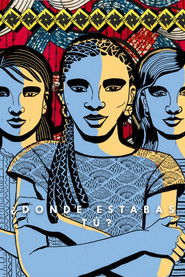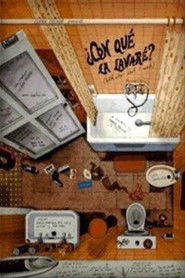
María Trénor
DirectorWriter
-
Birthday
-
Zodiac Sign
-
Genres
0
Total Films
Also known as (female)
Place of Birth
-
Birthday
-
Zodiac Sign
-
Genres
0
Total Films
Maria Trenor
Also Known As (female)
-
Place of Birth

-
Birthday
-
Zodiac Sign
-
Genres
0
Total Films
Also known as (female)
Place of Birth
-
Birthday
-
Zodiac Sign
-
Genres
0
Total Films
Maria Trenor
Also Known As (female)
-
Place of Birth
actor
0 Works
producer
0 Works
director
10 Works
writer
3 Works
other
3 Works

Rock Bottom
Inspired by the music and life of Robert Wyatt, “Rock Bottom” is a self-destructive love story between Bob and Alif, a young couple of artists immersed in the creative whirlwind of the early 70s hippie culture. Drugs will turn a passionate summer into a nightmare in a journey through the themes of Wyatt’s music: the euphoria and anguish of artistic creation, the unconscious fascination with drugs, the disenchantment with routine and physical and mental degradation.Year:
2024

Rock Bottom
Inspired by the music and life of Robert Wyatt, “Rock Bottom” is a self-destructive love story between Bob and Alif, a young couple of artists immersed in the creative whirlwind of the early 70s hippie culture. Drugs will turn a passionate summer into a nightmare in a journey through the themes of Wyatt’s music: the euphoria and anguish of artistic creation, the unconscious fascination with drugs, the disenchantment with routine and physical and mental degradation.Year:
2024

Rock Bottom
Inspired by the music and life of Robert Wyatt, “Rock Bottom” is a self-destructive love story between Bob and Alif, a young couple of artists immersed in the creative whirlwind of the early 70s hippie culture. Drugs will turn a passionate summer into a nightmare in a journey through the themes of Wyatt’s music: the euphoria and anguish of artistic creation, the unconscious fascination with drugs, the disenchantment with routine and physical and mental degradation.Year:
2024

Rock Bottom
Inspired by the music and life of Robert Wyatt, “Rock Bottom” is a self-destructive love story between Bob and Alif, a young couple of artists immersed in the creative whirlwind of the early 70s hippie culture. Drugs will turn a passionate summer into a nightmare in a journey through the themes of Wyatt’s music: the euphoria and anguish of artistic creation, the unconscious fascination with drugs, the disenchantment with routine and physical and mental degradation.Year:
2024

Where Were You?
Where Were You? challenges us to reflect on this transversal and universal reality that is violence against women. Everyday violence, subtle or brutal, all terrible and intolerable. Experiences told in different languages and from different countries.Year:
2019

Where Were You?
Where Were You? challenges us to reflect on this transversal and universal reality that is violence against women. Everyday violence, subtle or brutal, all terrible and intolerable. Experiences told in different languages and from different countries.Year:
2019

Where Were You?
Where Were You? challenges us to reflect on this transversal and universal reality that is violence against women. Everyday violence, subtle or brutal, all terrible and intolerable. Experiences told in different languages and from different countries.Year:
2019
Exlibris
“Exlibris” is an experimental animated short film that pays tribute to books, the pleasure of reading, and one of the most fascinating works of literature ever written.Year:
2009
Exlibris
“Exlibris” is an experimental animated short film that pays tribute to books, the pleasure of reading, and one of the most fascinating works of literature ever written.Year:
2009

With What Shall I Wash
An animated short film in which the images blend with humor and originality. Sixteenth-century music sung brings an emotional dimension, which makes this short with a touch of brilliant production in gay cinematography. The short film won the TEDDY AWARD for short films at the 54th International Film Festival in Berlin in 2004. Day break in the red-light district of a Spanish town. Someone who earns their living in these parts makes their way home, sits down in front of the mirror and begins to remove their make-up. As they do so, they reflect on the events of the night to the strains of a song from the Middle Ages entitled "¿Con qué la lavaré?", a lament about single women which was once sung in four-part harmony. A celluloid tribute to homosexual artistes of the late 1970s, just after Franco's dictatorship.Year:
2003